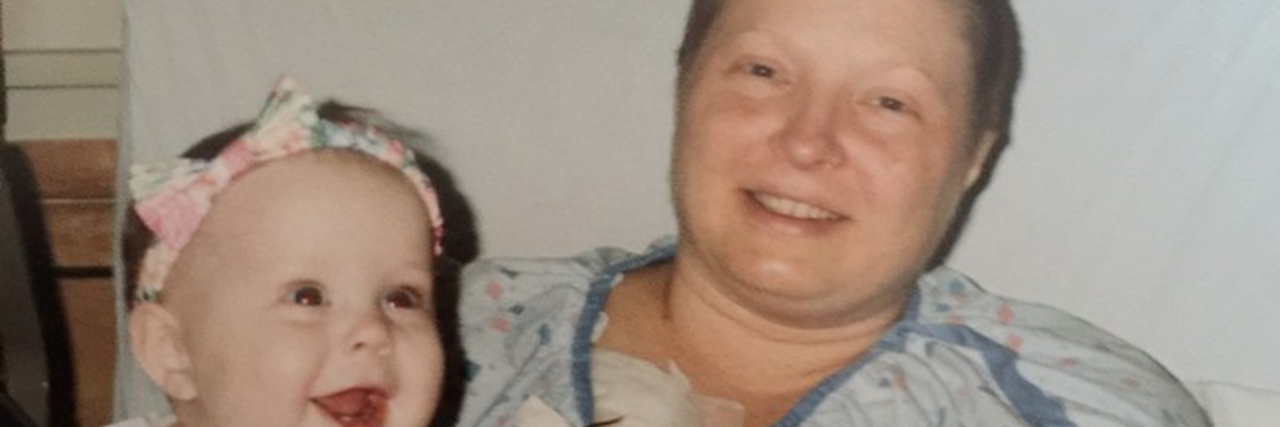I was only six weeks old when my mom was diagnosed with stage III cancer.
At a time when I was too young to help and too helpless to remember, she was told she may only have one year to live. At only 38, life flashed before her eyes. In the weeks leading up to the tragic diagnosis, I doubt she ever thought that would be the result.
What she does remember is the lump she felt in her breast and the fact that her newborn wouldn’t nurse. She remembers making an appointment for a mammogram. And, of course, she remembers the fateful words: “You have cancer.”
In that very moment, I can picture her eyes filled with tears as she looked at her bright-eyed baby girl. I can almost feel the instant when fear washed over her.
What did this mean for her?
What did this mean for her 12-year-old son about to enter such influential years of his life?
What did this mean for her baby?
No one thinks they will get cancer, but an estimated 12.7 million people are told they have the terrifying disease every year.
That’s 12.7 million people wondering whether they will celebrate another birthday with their family. And perhaps the scariest: That’s 12.7 million people feeling the same fear, anxiety and panic my mom experienced 22 years ago.
One year to live.
When my mom was first diagnosed, she was told to get her affairs in order and to hope for a year.
Only 12 months to make as many memories and to take as many photographs as possible with her beloved son and bouncing baby girl. As weeks turned to months, my mom underwent one treatment after another. She tried everything, from a mastectomy and bone marrow transplant to hardcore chemotherapy and radiation.
Despite the side effects and symptoms, she did what she could to be with her children. It seemed like things couldn’t get any worse. Life became a balancing act of family dinners, baseball games, support group meetings, wrestling matches, oncology appointments and planning for a shaky future.
A second diagnosis. A second patient.
Just a few months after the breast cancer diagnosis, things took an unexpected turn. My mother began to notice spots on my skin. Together, we visited specialist after specialist to figure out what was wrong with me. Several doctors diagnosed it as diaper rash or heat rash. But nothing would make the spots go away.
Then finally, after months of misdiagnoses from a dozen different specialists, one physician figured it out: Langerhans Cell Histiocytosis (LCH).
If you’re like most people, you’ve never heard of LCH. It’s a rare cancer that causes lesions to form in various parts of the body. It’s so rare that only one in every 100,000 people develop the condition. When I was first diagnosed with LCH, my mom had never heard of it, and she certainly never imagined one of her children would have cancer.
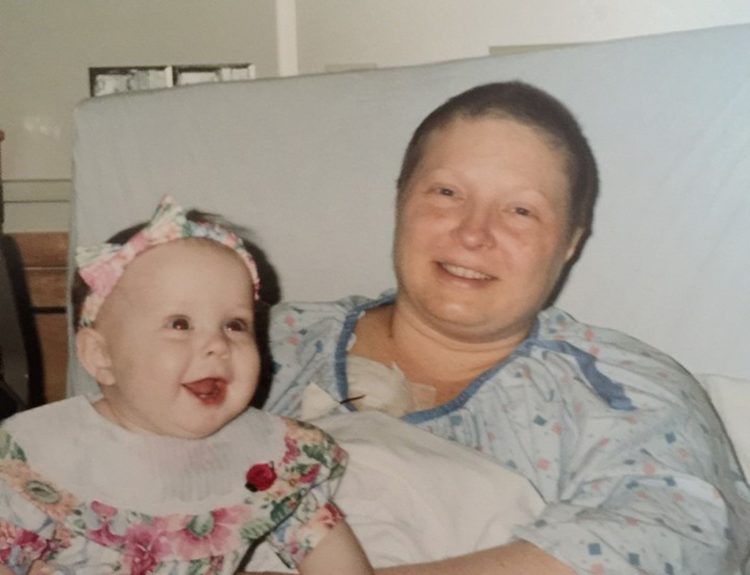
In an instant, my mom’s fear and anxiety skyrocketed. Both of us were now attending chemotherapy sessions. We juggled oncologists, surgeries and any other treatments that could help us.
My mother’s predicted one-year life expectancy came and went.
It took nearly five years and a craniotomy to figure out how to treat my LCH, and finally, shortly after I turned five years old, I went into remission. My mom continues to fight her disease. Every. Single. Day.
This October will mark 23 years since my mom was diagnosed with cancer.
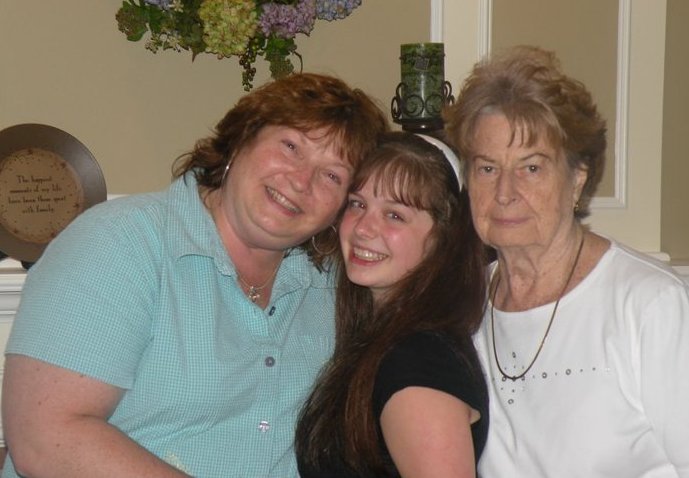
Understanding cancer.
Cancer plays a significant role in my life.
For as long as I can remember, cancer has been a family affair. Not only were my mom and I diagnosed with the disease, but in 2010, my grandmother was told she had breast cancer.
That’s three generations of women in my family battling and surviving cancer.
Because of that, my mom and I did whatever we could to help other cancer survivors. As a two-woman team, we spent the days leading up to major holidays painting pediatric survivors’ faces. Their eyes would glimmer with happiness as we painted ghosts and pumpkins on their cheeks.
Much like me, they had no idea what they were up against and no idea what life would be like for them. That’s what is unique about pediatric cancer patients. Many don’t understand what cancer means.
It was always a very different experience on the mornings my mother and I would go to her chemotherapy sessions. The environment was much less joyful. There weren’t pictures of children who beat the odds decorating the walls but rather bland paintings and stacks of magazines on every table.
For these patients, she created inspirational tote bags lined with motivational quotes and simple pictures. Walking through the corridor, she’d talk to patient after patient who was experiencing the same fears and anxiety as anyone else. This is where I really remember my mom shining.
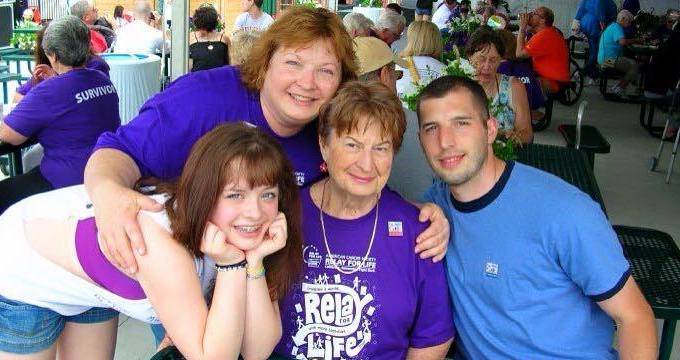
Her story of beating the odds time and time again inspired so many. Often, she would sit next to a patient getting their first round of chemotherapy and simply hold their hands. She provided insight, but most importantly, she provided hope. I always wondered how I could do that; how could I help people the way she does?
For a long while, I wanted to become a pediatric oncologist. I figured the best way to give back was to treat patients medically. It took years and several thousand dollars to realize science and chemistry were not meant for me. For a few years, my goal of helping cancer patients was put on the back burner.
A stint at Walt Disney World and a writing position focused on COPD allowed me to grow and understand myself. That’s when I joined The Mesothelioma Center.
Every day, I have the opportunity to speak with mesothelioma survivors and caregivers, to hear their stories and to help them find the support they need.
Their stories remind me to never give up hope. It’s amazing to think how people who are facing the most difficult battle they will ever experience continue to beat the odds. It’s these very people — like my mom — who inspire the rest of the world to keep on fighting.
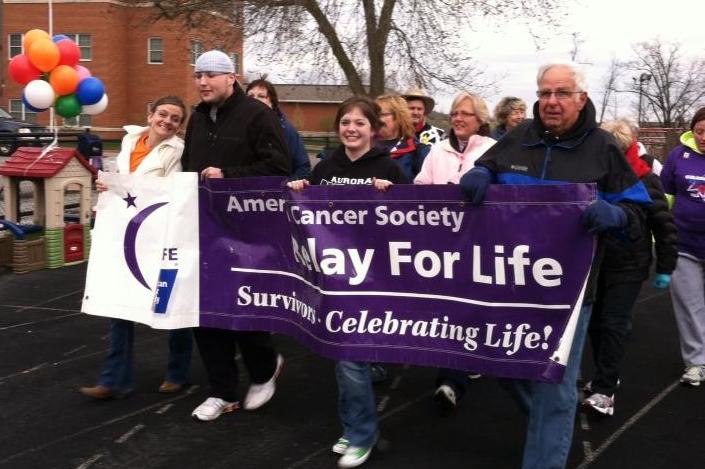
We can do so much. We just can’t give up.
This post was originally published on HuffPost.
We want to hear your story. Become a Mighty contributor here.

